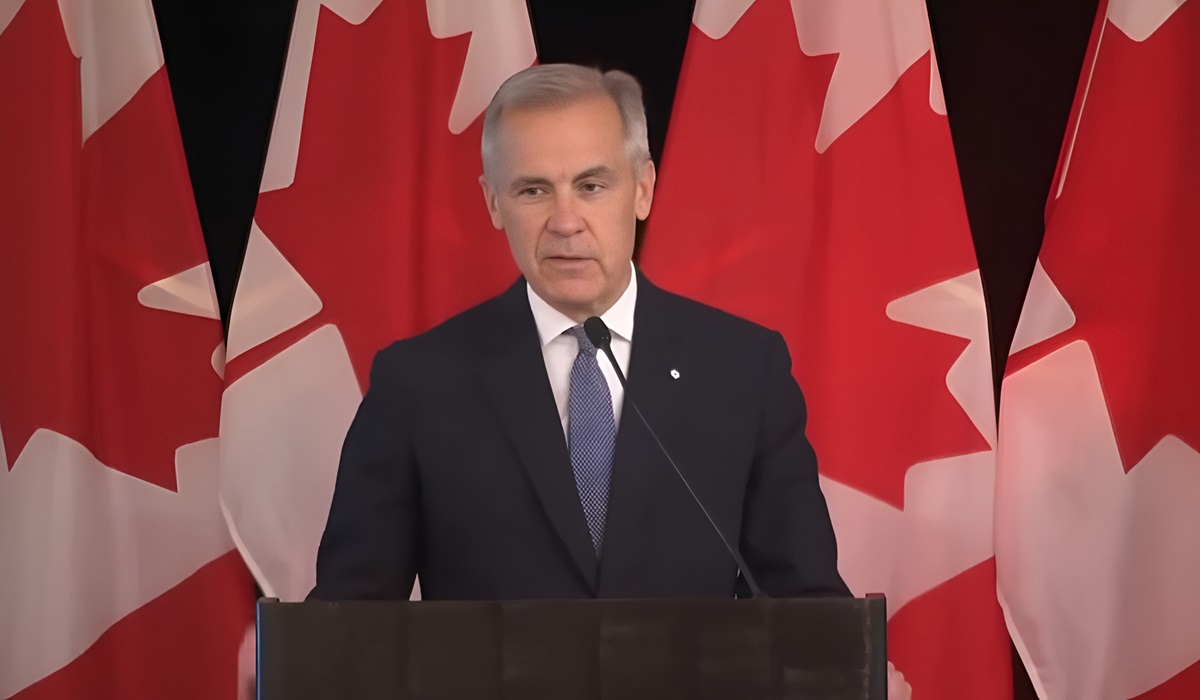By Donovan Martin, Sr, Editor in Chief
Let’s get this straight from the start—I was never a supporter of Prime Minister Mark Carney. Not during his campaign, not during his leadership race, and certainly not during the questionable process that delivered him the Liberal crown. The president of the Liberal Party, Sachit Mehra, and the co-chair of the leadership race, Terry Duguid, left a sour taste in many voters’ mouths with the way that race unfolded. From the party’s regrettable leaks to the media to the heavy-handed internal politicking that tilted the field, it was a mess that did lasting damage to the party’s credibility. Let’s just say they don’t deserve any pats on the back—and at best, they wouldn’t even qualify for a participation ribbon. But that’s a story for another day.
Now, before we go any further, let’s make one thing absolutely clear: this is by no means a ringing endorsement of the Liberal Party. The last administration was, to put it bluntly, disastrous. Their policies veered so far left you’d swear the country was spinning in circles. The foreign affairs department under Mélanie Joly—if one can even call it leadership—was a masterclass in confusion, inconsistency, and lack of vision. Canada’s diplomatic posture became a patchwork of photo ops and platitudes with no clear direction. Add to that the government’s ossified approach to our natural resources, refusing to use what we have for the benefit of Canadians while bending to the altar of performative environmentalism, and you have a recipe for economic stagnation.
Hundreds of millions of taxpayer dollars were thrown into international climate accords that did little for the people paying the bill. While Canadian families struggled with affordability, that money flowed out of the country to help others “fix” their climate problems—an admirable gesture in theory, but indefensible when your own citizens can’t afford home heating. And let’s not forget the billions being spent on foreign wars, draining the treasury while our own veterans wait for medical care and support. So again, let it be said plainly: this is not an endorsement of the Liberal Party, because as elected as they are, there remain several MPs and ministers who frankly don’t deserve to represent the people at all.
That said, fairness still matters. And in fairness, since assuming office, Carney has done a fair bit of good for the country. You don’t have to like the man or the manner in which he won to recognize when he’s steering the country in a stable direction. Particularly on the global stage, he’s shown a steady hand. Navigating the economic minefield of tariffs with the Trump administration is no small feat. While Trump plays checkers—loud, reactionary, and mostly for show—Carney seems to be playing chess, calculating and patient. Bit by bit, he’s managed to soften the edges of some disastrous trade policies, restoring a degree of economic sanity that few expected this early in his tenure. Credit must be given where it’s due; it looks like he’s on the verge of reversing some of the worst missteps of the last few years.
Now, as his first federal budget makes its way through Parliament, we’re hearing the same tired chorus from opposition benches—Conservatives, NDP, and Bloc alike—all threatening to vote against it. Not because it’s a disastrous budget, not because it’s inherently flawed, but simply because, in their collective political arrogance, they’ve decided that Canada needs to live in a perpetual election cycle. Let’s call it what it is—hubris. This isn’t principled opposition; it’s childish brinkmanship dressed in partisan colours.
A minority government means compromise. It’s supposed to mean negotiation, maturity, give-and-take. Yet here we are again, watching opposition parties turn what should be a policy discussion into a hostage negotiation.
When the Liberals had a similar situation under the previous prime minister, their supply and confidence deal with the NDP helped Canadians in tangible ways. Dental care, child benefits, pandemic recovery support—whatever one may think of those policies, they mattered. Jagmeet Singh, for all his missteps, ensured the working-class family got something concrete. And Carney’s government, whether you like him or not, is operating in that same crucible of compromise. But instead of talking about what could be improved, or what concessions could be negotiated, every opposition leader seems more eager to make headlines than headway.
The Conservatives, under their ever-combative leader, are salivating at the thought of forcing another election. It’s not because they think Canadians want one—it’s because he wants to be prime minister so badly that he’s willing to burn the furniture just to keep warm. That isn’t leadership; that’s desperation disguised as outrage. And here’s the hard truth: even if Carney’s budget granted the Conservatives every policy bone they’ve been barking for—tax cuts, spending caps, deregulation—they would still vote it down. Because this isn’t about the economy. It’s about ego.
Then there’s the NDP—once a proud workers’ movement, now a political ghost of itself. They were decimated at the polls before Carney’s government formed, to the point where they had to beg for party status to keep the lights on in their offices. Carney said no. Was that harsh? Maybe. But politics isn’t charity. Now, instead of rebuilding and refocusing on their roots, they’re threatening to vote against a budget that could actually deliver help to the very people they claim to represent. If they keep playing hardball, they risk vanishing entirely in another election. The question is: are they fighting for relevance or revenge?
And of course, the Bloc Québécois—forever performing its tired routine. Every issue is a Quebec issue; every budget item is filtered through the lens of “What’s in it for us?” There’s a fine line between representing provincial interests and being perpetually parochial. The Bloc long crossed it. Their obsession with independence and provincial exceptionalism turns every debate into an echo chamber of self-interest. It’s as if they’ve forgotten—or perhaps refuse to accept—that Quebec is still part of Canada. Depending on which Bloc MP you talk to, that might even be considered a temporary inconvenience.
So, as the political theatre unfolds, let’s strip away the spin and the sanctimony. Budgets are never perfect. They never please everyone. They are living compromises—documents that reflect the priorities of a nation trying to balance its books and its conscience. Yes, there will be waste. Yes, there will be “pet projects” slipped in for political brownie points. That’s politics. Always has been. But there will also be meaningful investments: funds for healthcare expansion, affordability measures for struggling households, infrastructure spending to boost provincial economies. And yet, instead of talking about what works, our elected officials are sharpening knives and counting votes.
The irony is, the average Canadian doesn’t care about political gamesmanship. They care about their bills, their mortgages, their groceries, their kids’ schools. They care about seeing some sign that their government—any government—is functioning like adults. What they’re getting instead is a political sandbox where everyone wants to be king.
Carney’s first budget is a test not just for him, but for Parliament itself. Does Canada still have the capacity to govern itself responsibly under a minority setup, or have we devolved into an endless loop of self-inflicted instability? Every year, we hear the same dire warnings about election fatigue and voter apathy, yet the same politicians who preach responsibility are the first to threaten an election over a bill they haven’t even read in full. It’s madness disguised as democracy.
Let’s be clear—Carney doesn’t get a free pass. His economic approach is cautious, at times overly technocratic. His communication style can come off as cold, even condescending. But his budget, by most early analyses, appears pragmatic: a balance of fiscal restraint and targeted stimulus. Modest investments in clean energy, measured relief for working families, and a slow but deliberate path toward deficit reduction. It’s not revolutionary, but it’s responsible. And that’s precisely why it’s worth debating honestly, not derailing for sport.
This country is weary. Inflation pressures may be cooling, but affordability is still strangling the middle class. Small businesses are barely recovering from pandemic-era debt, and public infrastructure—from healthcare to housing—is groaning under pressure. This budget, flawed as it may be, is at least a starting point for solutions. Yet the political appetite seems to be for chaos, not collaboration.
We often like to imagine Parliament as the beating heart of democracy, but right now, it looks more like a hostage room where each faction holds the nation’s well-being at gunpoint. “Give us what we want or we’ll bring you down.” That’s not governance—that’s extortion with microphones.
So here’s the grown-up take: pass the budget. Debate it, amend it, argue your points—but don’t blow up the house just to prove you can. Canadians are tired of being the collateral damage in your endless campaigns. If you truly believe you were elected to serve the public, then serve them. Put your egos on ice for a season and let the policies do the talking.
Carney’s first budget deserves to be heard before it’s discarded. The man may not be everyone’s favourite leader, but he’s earned the right to put forward a fiscal vision without the constant threat of political execution. Let’s give this budget a chance—not because it’s perfect, but because democracy demands that we at least try to make imperfect things work.
In the end, budgets aren’t about political wins or losses. They’re about the direction a country takes in uncertain times. And right now, Canada doesn’t need another election—it needs direction, cooperation, and a Parliament that can remember why it exists in the first place.
So, to the opposition leaders sharpening their knives: step back. Take a breath. This isn’t a playground; it’s a country. And Canadians deserve better than perpetual brinkmanship from people who claim to lead. If you can’t put your partisan pride aside long enough to pass a budget, then maybe it’s not the government that needs replacing—it’s the attitude that politics must always come before progress.









